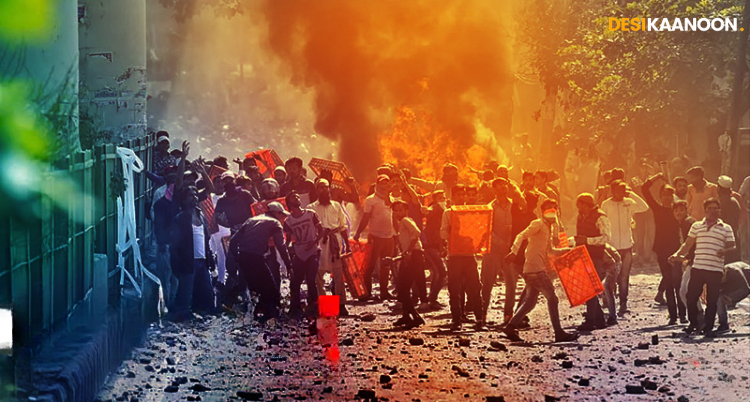Aastha Pareek
The Delhi High Court, while hearing bail applications in the Delhi riots conspiracy case on January 9, 2024, directed the Delhi Police to adopt a concise approach in presenting their arguments. The Division Bench of Justice Navin Chawla and Justice Shalinder Kaur underscored that the proceedings pertain to bail and not a trial, emphasizing the need for brevity and clarity. The Court interjected Special Public Prosecutor Amit Prasad, stating, “We just wanted to have a bird’s-eye view of the evidence you have, not that you be commenting on each and everything like this.”
The Bench suggested the preparation of a brief chart detailing the evidence against the accused, highlighting the distinction between a bail application and a trial. Justice Chawla noted that an exhaustive discussion of evidence would render the process cumbersome and unnecessary at this stage. Justice Kaur added, “What is the conspiracy according to you and how the conspirators acted, that is all.”
The matter arose during the hearing of bail petitions filed by Umar Khalid, Sharjeel Imam, Gulfisha Fatima, Khalid Saifi, and others, who have been in custody for several years. Their primary contention revolved around the significant delay in the trial process, with the charges yet to be framed. Senior Advocate Rebecca John, representing one of the accused, remarked on the tenuous interconnectivity of the evidence, stating that even after years of investigation, the prosecution’s case lacked clarity and conciseness.
SPP Prasad argued that the accused were part of a larger conspiracy aimed at instigating violence during protests against the Citizenship (Amendment) Act (CAA). He referred to speeches by some of the accused, claiming they were designed to create fear among the public. Additionally, he alleged that some accused had deliberately placed themselves outside Delhi during the riots to portray non-involvement.
The Court, however, sought to focus on the intent under the Unlawful Activities (Prevention) Act (UAPA), asking whether setting up protest sites against the CAA was sufficient to invoke UAPA or whether the resulting violence was integral to the charges. The Bench emphasized the need for the prosecution to clearly establish the intent behind the alleged conspiracy.
Acknowledging the complex nature of the case, the Court adjourned the matter to January 21, directing the prosecution to submit a concise note summarizing its arguments. This directive underscores the judiciary’s focus on efficiency and the critical distinction between bail proceedings and the trial process.
Case Name:– Umar Khalid v. State and other connected matters
FIR Number:– FIR 59/2020
Bench:- Justices Navin Chawla and Shalinder Kaur

